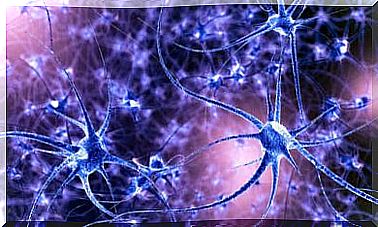Let’s Take Care Of Those Who Take Care Of Us

Let us take care of those who take care of us, because doctors, nurses, orderlies, assistants and, ultimately, all health personnel give their best to take care of us despite difficulties. They also feel our pain and suffer from the bureaucracy that their work implies just as we suffer from waiting lists.
Sometimes, all health personnel have to “juggle” to balance the demands of the bureaucracy, the heads of their health center, the well-being of the patient and the criticisms of the family members. All this, without taking into account the personal stress that they may suffer in their own lives.
For this reason, it is very common to find stress or burnout problems in health personnel. Therefore, thinking about those who take care of us, their well-being and taking care of them with techniques such as mindfulness, should be a priority in hospitals because those who take care of us also need to be cared for.
Stress and burnout in healthcare personnel
When we go with our relatives to a hospital, we are usually afraid and frustrated because we see a person who we love very much suffer, but we cannot do anything for him since we are not doctors. For this reason, we feel helpless, anxious and ask that they attend to it as soon as possible, bothering, perhaps too demanding, the health personnel we meet along the way.
In addition, each and every one of the members of this hospital lives subject to exhausting working hours and, on some occasions, especially in the summer period, they also suffer from a shortage of staff at their centers . And yet they carry out their work with the greatest possible professionalism, playing the balance with all the demands, ours and those of their centers, but sometimes, the balance is broken and problems begin.
Stress
Work stress to a set of emotional, cognitive, physiological and behavioral reactions of the worker to certain adverse or harmful aspects of the work. Occupational stress in health personnel arises when the demands of work are high and, at the same time, the ability to control decision-making – due to lack of resources, both personal and specific to the health environment – is low.

Certain work conditions typical of healthcare personnel are usually related to a wide range of physical and mental symptoms that affect the health of the doctor, the organization itself and the quality of care that healthcare professionals provide us.
These situations may have to do with the relationship with patients and their families, daily contact with death and pain, responsibility for the health of others, coping with emergency situations or social pressure and coordination difficulties.
Burnout
- : manifests itself in emotional alterations that arise from the difficulties of professionals to handle intense emotions, of patients or other professionals, which affect their professional decisions and increase errors in practice. In addition, these emotional alterations cause psychological discomfort and reduce the empathy that facilitates a good relationship between professional and patient.
- : characterized by a tendency towards distancing from patients and the adoption of robotic behaviors, which can increase errors in their work.

All this makes the psychological and health consequences very serious. Some of the most common symptoms that are suffered with this syndrome are: low self-esteem, feeling of exhaustion, failure and helplessness, permanent state of excitement and nervousness, irritable or aggressive behaviors, headaches, tachycardia, insomnia and poor performance, among others. .
Difference between stress and burnout
- Stress can disappear after an adequate period of rest and rest, burnout does not decline with vacations: burnout is not a process associated with fatigue, but with emotional and cognitive demotivation that follows the abandonment of interests that at a certain moment they were important to the healthcare worker.
- Burnout appears more abruptly than stress: among healthcare personnel, burnout appears insidiously while stress develops over a longer period of time in which the demands of those they care for are exceeded.
-
Burnout is a stress variable specifically related to the loss of the cognitive elements that value a job: it appears when the justification of an effort or task that was previously passionate is lost and it becomes a heavy, monotonous or excessive load.
The benefits of mindfulness in healthcare personnel
The mental health of these professionals requires special attention to learn to regulate situations of stress, anxiety and emotional distress. The practice of Mindfulness not only improves the functioning and quality of life of the healthcare professional, but also improves the service and care provided to patients.
Therefore, teaching those who care for us a series of techniques based on mindfulness that help them improve their emotional state, increase empathy and take care of their well-being, will affect our own health and the quality of our health system, since taking care of those who take care of us is taking care of ourselves.









